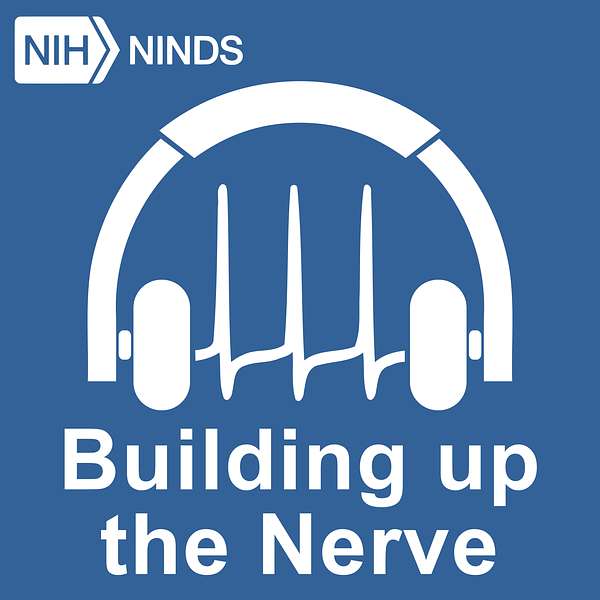
NINDS's Building Up the Nerve
Season 5 of the National Institute of Neurological Disorders and Stroke’s Building Up the Nerve podcast helps you strengthen your science communication skills with tools and advice to use throughout your career. We know that navigating your career can be daunting, but we're here to help—it's our job!
NINDS's Building Up the Nerve
Season 4 Trailer
Use Left/Right to seek, Home/End to jump to start or end. Hold shift to jump forward or backward.
Welcome to Season 4 of the National Institute of Neurological Disorders and Stroke’s Building Up the Nerve, where we discuss the unwritten rules, or “hidden curriculum,” of scientific research at every career stage. We know that navigating your career can be daunting, but we’re here to help—it’s our job!
Transcript available at https://ninds.buzzsprout.com/
[00:00:00] Lauren Ullrich: On season four of Building Up the Nerve, we're talking about the unwritten rules or "hidden curriculum" of scientific research at every career stage. Our conversations this season center around topics related to starting undergraduate research, succeeding in graduate school, applying to faculty positions, and much more.
[00:00:24] Marguerite Matthews: As in previous seasons, the goal is to help you learn from peers, colleagues, and experts who can provide you with all the information you need to succeed in your neuroscience career. I'm Marguerite Matthews, a program director at NINDS
[00:00:38] Lauren Ullrich: and I'm Lauren Ulrich, also a program director at NINDS, and we're the hosts of Building Up the Nerve.
We know that navigating your career can be daunting, but we're here to help. It's our job. Here's a preview of what you can look forward to this season.
[00:00:54] Hannah Nacht: Nobody in this conversation has discussed the specifics of anything you'll find in a paper. But what everybody has discussed is that your undergrad, you're learning just as much about yourself as you are cells and molecules and processes and pipetting and how to spell pipette and like [laughs] the thing is
[00:01:13] Marguerite Matthews: it has two t's
[00:01:14] Hannah Nacht: Two t's, baby, two t's!
[00:01:16] Cheyanne Lewis: I got a lot of my knowledge from people I talked to very casually. And a lot of the networking I did was through social media, and all it took was like a simple direct message to be like, "Hey, I'm actually kind of interested in what you do. Do you think maybe we could chat or talk a little bit more about that?
[00:01:35] Daniel Colon-Ramos: Essentially what you're gonna be doing in grad school is making discoveries. You're not gonna be running experiments that other people [have] run before. So, admissions committees are looking for how is it that the student responds to disappointing results? How thoughtful is this student when encountering things that challenge the way that they think about a problem?
[00:01:57] Cellas Hayes: I just like planned the conferences out earlier in the year and I just tried to do the registration as early as possible and pay for it out of pocket like six weeks in advance, submit my stuff for the university, and that way I get reimbursed like right before the conference instead of waiting till afterwards. But different institutions have different policies.
[00:02:19] Shekinah Phillips: I mean, I just learned something from Cellas, 'cause I didn't do that at all. [laughter]
[00:02:25] Ishmail Abdus-Saboor: I think a committee that is good for junior faculty is the, uh, seminar committee because there you can invite outside speakers, maybe someone you've been meaning to collaborate with and wanna spend a little bit more time with. Or thinking about senior people who may be tenure letter writers and you want a little more access to this person. So, getting on that committee is a good use of your time, I would say, as a junior faculty member.
[00:02:48] Erika Augustine: And I think what is not so clear is that there are many opportunities to continually evolve the career that you would like for yourself as you better understand your passions, the people with whom you like to work, the skills that you have and the skills that you're looking to build. And I think we should talk about that more.
[00:03:16] Marguerite Matthews: Season four debuts on June 30th, 2023. Be sure to subscribe to the podcast on Apple Podcast or your favorite podcast app so you won't miss an episode.